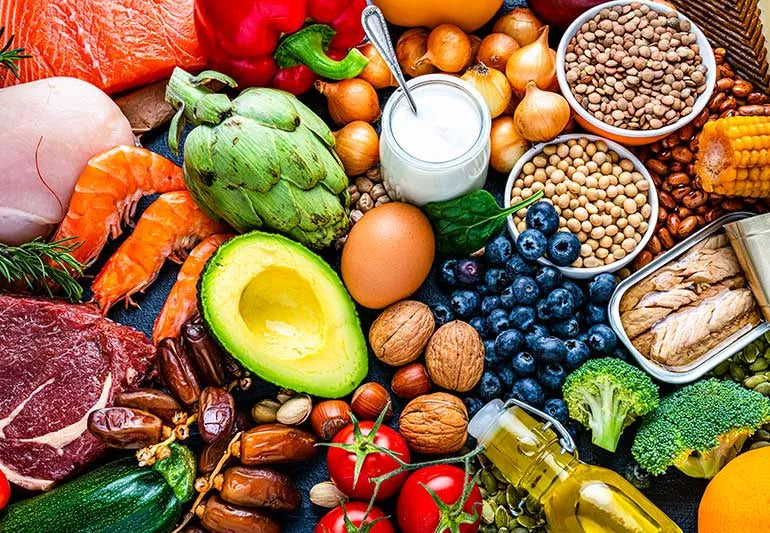Overview
Vitamins are essential micronutrients your body needs in small amounts—but their impact is massive. Alongside minerals (electrolytes), vitamins help power everything from immunity and bone strength to vision and skin health.
In this two-part series, we’ll break down the two categories of vitamins: fat-soluble and water-soluble. In Part 1, we’re covering fat-soluble vitamins—what they are, how they work, and the best sources for optimal performance and recovery.
What Are Fat-Soluble Vitamins?
Fat-soluble vitamins are absorbed along with dietary fat and require bile from your digestive system to be broken down. These vitamins—A, D, E, and K—can be stored in the body’s fat tissue and liver for future use.
Let’s dive into the individual fat-soluble vitamins and how they benefit your body—especially if you’re an athlete, first responder, or high performer looking to level up.
Vitamin A: Vision, Skin, and Immune Function
Vitamin A exists in two forms:
-
Animal-based (Retinol, Retinal, Retinoic Acid)
-
Plant-based (Beta-carotene)
Retinol (the storage form), retinal (for vision), and retinoic acid (for immune, skin, and gene expression) are all vital. While beta-carotene from plants like carrots can convert into usable vitamin A, the conversion is inefficient. Your body prefers—and better utilizes—vitamin A from animal sources like liver, egg yolks, and grass-fed dairy.
✅ Best sources: Liver, egg yolks, whole milk, butter
⚠️ Avoid relying solely on plants: Conversion from beta-carotene isn’t guaranteed.
Vitamin D3: The Sunshine Vitamin for Bone and Immune Health
Vitamin D3 (cholecalciferol) is technically a hormone, and your body can synthesize it when exposed to sunlight. It’s also found in animal products like fatty fish and egg yolks.
Its primary role? Helping your body absorb calcium—critical for bone density, muscle contraction, and preventing fractures or osteoporosis. It also supports the immune system and may reduce the risk of infections.
✅ Best sources: Sunlight, salmon, mackerel, sardines, egg yolks
🔑 Tip: If you’re not getting daily sun exposure, supplementing with D3 is crucial.
Vitamin K2: The Calcium Director
Vitamin K2 (menaquinone) works in synergy with vitamin D3 to direct calcium where it belongs—into your bones and teeth—instead of arteries, where it can cause problems.
Without enough K2, high doses of vitamin D may lead to calcification in the wrong places or poor bone mineralization.
✅ Best sources: Grass-fed liver, egg yolks, fermented animal products
💊 Pro tip: At Ascend Performance Nutrition, we offer a D3+K2 combo supplement called Foundation, designed for optimal absorption and synergy. (Always consult your healthcare provider before starting supplements.)
Vitamin E: Antioxidant Power and Recovery Support
Vitamin E—especially in the form of alpha-tocopherol—is your body’s antioxidant defense system. It helps neutralize free radicals, supports immune function, aids skin repair, and plays a role in neurological health.
It’s present in both plant and animal products, though grass-fed animal products offer more bioavailable forms.
✅ Best sources: Almonds, extra virgin olive oil (organic), peanut butter, grass-fed meat and butter
⚠️ Look for alpha-tocopherol in animal products for better absorption.
Final Thoughts
Fat-soluble vitamins are critical for peak performance, recovery, and long-term health. From vision and skin (Vitamin A) to bone density and immune strength (Vitamin D & K) to cellular protection (Vitamin E), these nutrients are best absorbed and utilized from animal-based sources.
🌟 Key takeaway: If you want results, your body needs vitamins in the most bioavailable form—and that means prioritizing animal products or trusted supplements like Foundation.
📆 Stay tuned for Part 2, where we break down water-soluble vitamins and how they fuel metabolism, energy, and performance.





Leave a comment
This site is protected by hCaptcha and the hCaptcha Privacy Policy and Terms of Service apply.